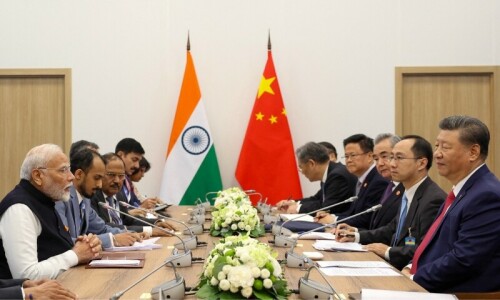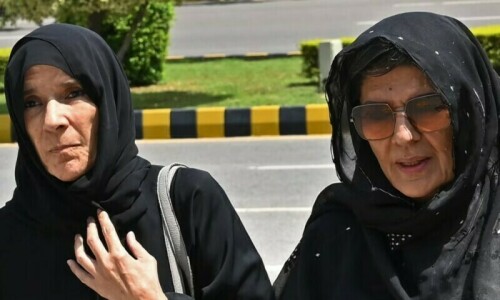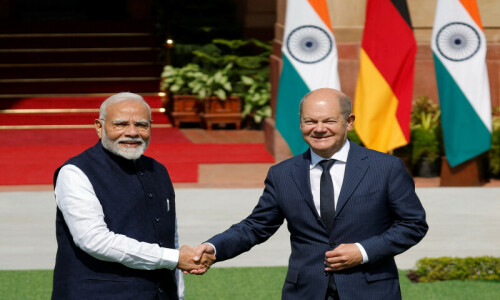THE IMF’s announcement that it has agreed to extend a lifeline of $3bn to rescue our crisis-hit economy has come as a relief to all stakeholders: government, business and the public.
Yet the fact that it baulked at the idea of approving Islamabad’s request to complete the ninth review of the just-expired EFF facility and release the $1.2bn tranche stuck for months shows that the lender still has trust issues with Pakistan.
The new agreement comes under the IMF’s short-term Stand-By Arrangement and is structured for a nine-month period to help save the teetering economy.
Even multiple interventions by Prime Minister Shehbaz Sharif, who must be credited for clinching the deal, despite Finance Minister Ishaq Dar’s outbursts against the Fund, couldn’t bridge this gap.
The IMF, which blames policy ‘missteps’ and shocks like floods and the Ukraine war for our declining economy, did not think it a good idea to free politicians and their collaborators in the finance bureaucracy from its oversight in the lead-up to the elections.
It wants Islamabad to strictly execute Budget 2023-24 and not cede to pressure for unbudgeted spending and tax exemptions.
After all, an economy plagued with high inflation, drying dollar inflows and macroeconomic instability takes a long time and sustained fiscal discipline to turn around.
The SBA is a better deal as it ends the uncertainty around fiscal discipline before and after the elections, with fears of an immediate sovereign default receding as reflected by the rapidly surging prices of Pakistan’s short-duration eurobond debt becoming due in 2024 and 2025.
If Pakistan follows the programme, it can unblock financing from multilateral and bilateral lenders and easily secure bilateral and commercial debt rollovers to shore up its foreign currency stocks.
Moreover, the fear of losing IMF support again will keep fiscal authorities on their toes.
But macroeconomic stability will not come free; the Fund demands that energy and foreign exchange market reforms be implemented, and the State Bank must pursue a proactive monetary policy.
That means interest rates will remain high and base electricity prices rise by a third to over Rs33 a unit.
The home currency may stabilise, even strengthen, in the short run, but further depreciation of the exchange rate cannot be ruled out once the administrative curbs on imports and dollar outflows are lifted.
Politicians and policymakers need to recognise that the deal gives them another chance to implement fundamental, structural reforms for long-term debt sustainability and macroeconomic stability.
If we implement the SBA diligently, it will help us secure a new long-term and less-encumbered bailout after the elections once the arrangement ends.
That is crucial to raise multilateral and bilateral funds to boost reserves, and buy some room to execute basic reforms for overall economic stability.
Published in Dawn, July 2nd, 2023













































Dear visitor, the comments section is undergoing an overhaul and will return soon.